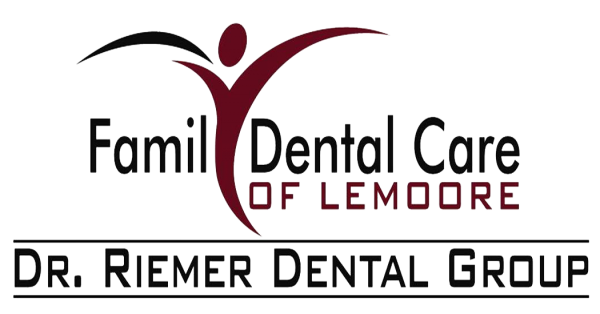Gum Disease Treatment
Gum disease treatment refers to a range of interventions aimed at managing and reversing the progression of periodontal disease, a bacterial infection that affects the gums and supporting structures of the teeth. This treatment is crucial in preserving oral health and preventing complications such as tooth loss and systemic health issues. Treatment options may include professional dental cleanings, antibiotic therapy, surgical interventions, and ongoing maintenance to reduce inflammation, eliminate bacterial infection, and restore periodontal health.
Early detection and proactive management of gum disease are paramount to preventing its progression and maintaining optimal oral health, highlighting the importance of timely intervention and comprehensive treatment strategies.
Gum Disease
Gum disease, also known as periodontal disease, is a bacterial infection that affects the gums and supporting structures of the teeth. It typically begins with the accumulation of plaque, a sticky film of bacteria, on the teeth and along the gumline. Over time, if plaque is not removed through proper oral hygiene practices, it can harden into tartar, leading to inflammation of the gums (gingivitis). If left untreated, gingivitis can progress to periodontitis, a more severe form of gum disease that destroys the bone and soft tissues supporting teeth.
Common symptoms of gum disease include red, swollen, or bleeding gums, persistent bad breath, receding gums, and loose or shifting teeth. Proper oral hygiene, regular dental checkups, and timely intervention are essential in preventing and managing gum disease, as untreated gum disease can lead to tooth loss and systemic health issues.
Treatment Options for Gum Disease
Professional Dental Cleanings
Professional dental cleanings, also known as scaling and root planing, are often the first defense against gum disease. During this procedure, the dentist in Lemoore, CA, uses specialized instruments to remove plaque and tartar from the surfaces of the teeth and below the gumline by eliminating bacterial buildup. Scaling and root planing help reduce inflammation and promote healing of the gums.
Antibiotic Therapy
Antibiotic therapy may be recommended in cases of moderate to severe gum disease to help eliminate bacteria and reduce inflammation. Antibiotics can be prescribed in various forms, including oral antibiotics, topical mouth rinses, or locally administered antibiotics such as Arestin. Arestin contains minocycline microspheres that release antibiotics over time, providing targeted antimicrobial action within periodontal pockets to support healing.
Surgical Interventions
In advanced cases of gum disease where non-surgical treatments are insufficient, surgical interventions may be necessary to restore periodontal health. Common surgical procedures performed by your dentist at Dr. Riemer Dental Group include flap surgery, which involves lifting the gum tissue to remove tartar and reduce pocket depth, bone grafting, and guided tissue regeneration to repair damaged tissues and regenerate lost bone support around the teeth.
Ongoing Maintenance
Following active treatment for gum disease, ongoing maintenance is essential to prevent recurrence and preserve periodontal health. This may include regular dental checkups and cleanings every three to six months, diligent oral hygiene practices at home, such as brushing and flossing twice daily, and lifestyle modifications, such as quitting smoking and adopting a healthy diet rich in fruits and vegetables.
The Benefits of Gum Disease Treatment
Preservation of Natural Teeth
One of the primary benefits of gum disease treatment is preserving natural teeth. If left untreated, gum disease can destroy the bone and soft tissues that support the teeth, ultimately resulting in tooth loss. By addressing the underlying bacterial infection and inflammation through treatment modalities such as scaling and root planing, antibiotics, and surgical interventions, gum disease treatment helps to stabilize the condition and prevent further progression, allowing patients to retain their natural teeth and maintain proper oral function. Contact us today!
Prevention of Tooth Loss
Untreated gum disease is a leading cause of tooth loss among adults. As the infection progresses, it can destroy the structures that anchor the teeth in place, leading to loosening and eventual loss of teeth. However, tooth loss can be prevented by addressing gum disease in its early stages and implementing appropriate treatment measures, such as professional dental cleanings, antibiotic therapy, and surgical interventions. Gum disease treatment aims to eliminate bacteria, reduce inflammation, and promote healing of the gums and supporting tissues, ultimately preserving the dentition's integrity and preventing tooth replacement procedures.
Improvement in Oral Health and Quality of Life
Gum disease treatment not only addresses the immediate symptoms of gum disease, such as red, swollen gums and persistent bad breath, but also improves oral health and quality of life. By eliminating bacterial infection and inflammation, gum disease treatment helps to alleviate discomfort, enhance oral function, and restore confidence in one's smile. Maintaining optimal periodontal health through regular dental checkups, professional cleanings, and diligent oral hygiene contributes to improved systemic health and overall well-being, as gum disease has been linked to an increased risk of certain systemic conditions, including cardiovascular disease, diabetes, and respiratory infections.
Long-Term Cost Savings
Investing in gum disease treatment benefits oral health and leads to long-term cost savings. Through timely intervention and appropriate treatment measures, tooth loss and the need for extensive restorative procedures, such as dental implants or bridges, can be prevented, significantly reducing dental expenses over time. Furthermore, maintaining optimal periodontal health helps prevent the onset of systemic health issues associated with untreated gum disease, potentially reducing healthcare costs related to managing these conditions.
Gum disease treatment helps stabilize the condition, prevent further progression, and promote overall well-being by addressing the underlying bacterial infection and inflammation. If you suspect you may have gum disease or have concerns about your periodontal health, visit Dr. Riemer Dental Group at 446 C St, Lemoore, CA 93245, or call (559) 924-2520 to discuss your treatment options and develop a personalized plan for restoring and maintaining optimal periodontal health.
